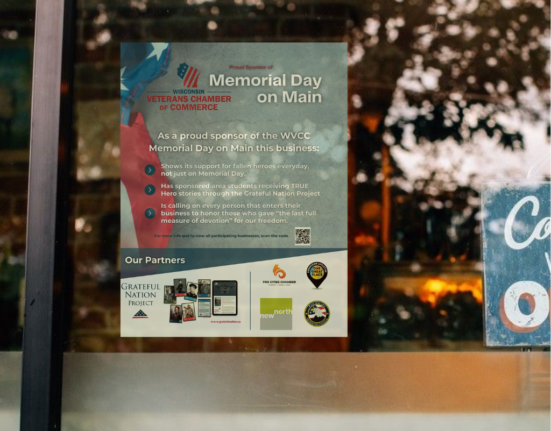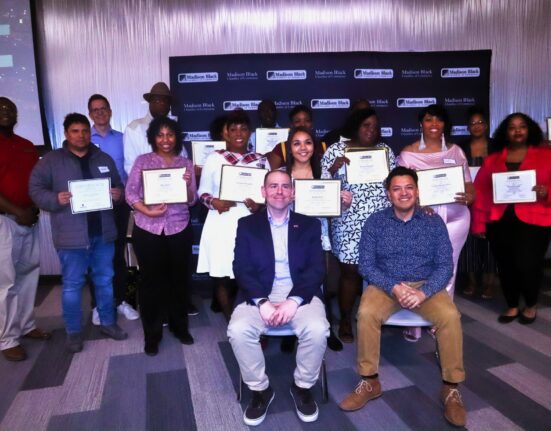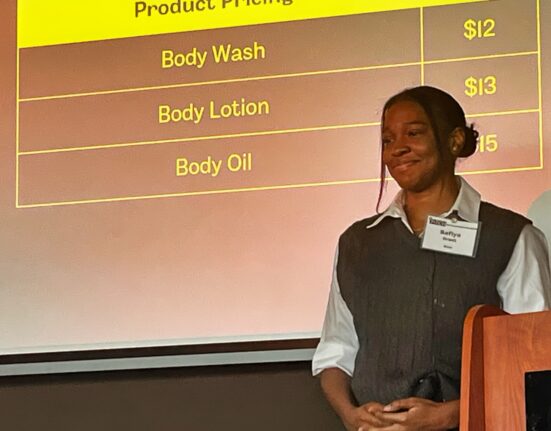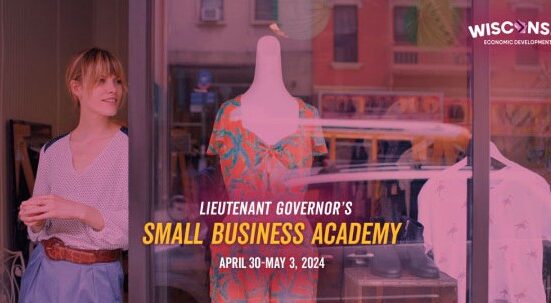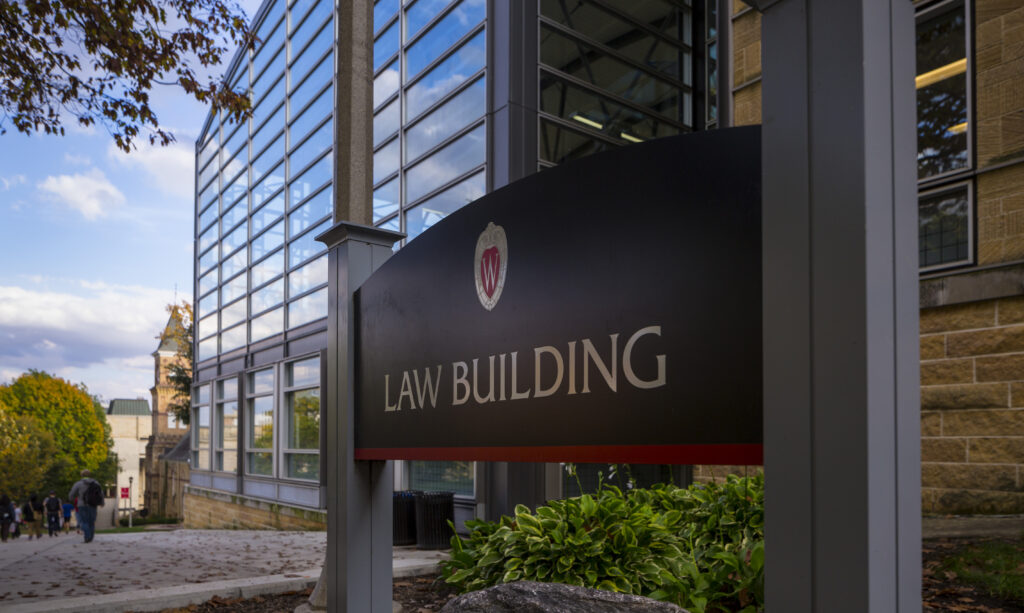
The faculty adviser of the University of Wisconsin Black Law Student Association (BLSA) is urging students not to participate in the State Bar of Wisconsin’s Diverse Clerkship program after the conservative group Wisconsin Institute for Law and Liberty (WILL) filed a federal lawsuit to end it, and made student application materials public in the process.
For nearly 30 years, the Diverse Clerkship program has matched first-year UW-Madison and Marquette University law students from “backgrounds that have been historically excluded from the legal field” with 10-week summer internships with law firms, courts and state government agencies.
Attorney Daniel Suhr, a former policy adviser to Governor Scott Walker and deputy director of the student division of the conservative Federalist Society, is listed as the plaintiff in the suit. The seven officers of the State Bar are listed as defendants.
The suit alleges that the Diverse Clerkship program is unconstitutional because it may use race as a factor in admission – a claim the State Bar denies.
““The State Bar of Wisconsin’s Diversity Clerkship Program is designed to assist first-year law students who attend the University of Wisconsin or Marquette University law schools by creating opportunities for introductions to private law firms, corporate legal departments, and governmental agencies that participate in the program. Neither race nor ethnicity is an eligibility factor or requirement for purposes of participation,” the State Bar said in a statement emailed to Blueprint365. “The State Bar is now aware of a lawsuit filed against the State Bar, targeting the Diversity Clerkship Program and other State Bar activities. The State Bar will vigorously defend the Diversity Clerkship Program, as the organization has long considered the program an important tool to support Wisconsin law school students.”
The suit further says Suhr objects to his State Bar Association dues – which he is required to pay to maintain his license to practice law – being used to fund the program, which State Bar records say costs $40,000 per year to operate.
That means it costs each of the State Bar’s 25,000 members about $1.60 per year. State Bar dues range from $136 to $272 per year, depending on membership category, in addition to additional fees imposed by the State Supreme Court.
Click here to download the 49-page complaint.
The lawsuit also expresses objection to programs that aren’t “germane” to the State Bar’s core mission – programs that promote personal wellness or offer discounts on cell phone service to members, for example.
The suit also expresses objections to State Bar statements in support of the Black Lives Matter movement in the wake of the murder of George Floyd in Minnesota.
Steven Wright, a civil rights attorney, clinical law professor at the University of Wisconsin, and BLSA adviser, said the suit is the direct result of recent United States Supreme Court rulings that outlaw the consideration of race in college admissions, along with other rulings.
“As soon as you start using phrases like ‘diverse,’ in some ways that actually acts as a lightning rod,” he said in an interview. “When the US Supreme Court abolished a woman’s right to choose, when the US Supreme Court abolished race as a factor in college admissions, there’s going to be a huge amount of fallout and a huge amount of ripples. This just seemed like it was an inevitable ripple … I think we’re going to spend the next 10, 15 years trying to just figure out the consequences.”

He also said groups like WILL are emboldened by a general push against diversity, equity and inclusion efforts in the public and private sectors.
The UW Board of Regents recently reached an agreement with the Republican-led state legislature to reduce state university DEI staff in exchange for building funds and legislatively-approved pay raises for all staff; Assembly Speaker Robin Vos has subsequently said his goal is to eliminate all DEI staff and programs across state government.
“They’re winning,” Wright said. “They’re more than emboldened. They’re winning. Why wouldn’t you try to run the table?”
Privacy concerns
To support its claim that the Diverse Clerkship program unconstitutionally uses race and other characteristics in its admission decisions, WILL included about 500 pages of applications, resumes and personal essays, as well as evaluation forms filled out by interviewers.
Skylar Croy, a lead attorney on the suit, told Blueprint365 that WILL obtained those materials from multiple state agencies that had received the applications for internships in their state offices. Such materials become public record as soon as they are received by state agencies; however anyone who wished to view those materials would have to submit an open records request. Now, they’re all available for anyone to download from PACER, the federal court’s online records site.
Croy said WILL received the materials from multiple agencies unredacted, but redacted the names, addresses and student ID numbers.
“We tried to be conscientious … out of respect for those law students,” Croy said.
Wright said some of the names remained unredacted, but assumed that was simply an error on the part of WILL. Regardless, Wright said the inclusion of any of that material was problematic.
“There are a lot of resumes, a lot of personal essays. … it’s not all that difficult for someone who has the time or the inclination to sort of figure out who people are,” Wright said, adding that the applications included “very personal, intimate responses that I don’t think the students anticipate would be shared with the public.”
He said WILL could have withheld or further redacted much of the material.
“The courts are quite comfortable with receiving redacted information, especially out of respect for this case, the students and third parties who did not even want to be a part of this litigation,“ he said.
He also said the UW and Marquette Law Schools could have intervened.
“My frustration (is) with the law schools for not helping to step up and protect the students and figure out ways to remedy the problem on their own, or to warn students that this was going to happen,” he said. “It’s not entirely clear that anybody is looking out for (students’) interests.”
Neither UW nor Marquette officials responded to emails and phone calls seeking comment. It’s not clear whether either school was aware that the lawsuit was coming.
In light of the application material disclosure, Wright emailed BLSA members last week to advise them not to participate in the program.
Further, Wright said the program isn’t particularly beneficial to Black students anyway. He noted that only one of the 25 participants in 2023 was Black.
“Maybe it’s the model of Wisconsin diversity, but it’s not a model of what we think of national diversity,” he said. “So when … you see the high rejection rate of African American applicants, and even those who get into the program often have very uncomfortable experiences, it doesn’t seem worth it to me to even put your name in that hat.”



